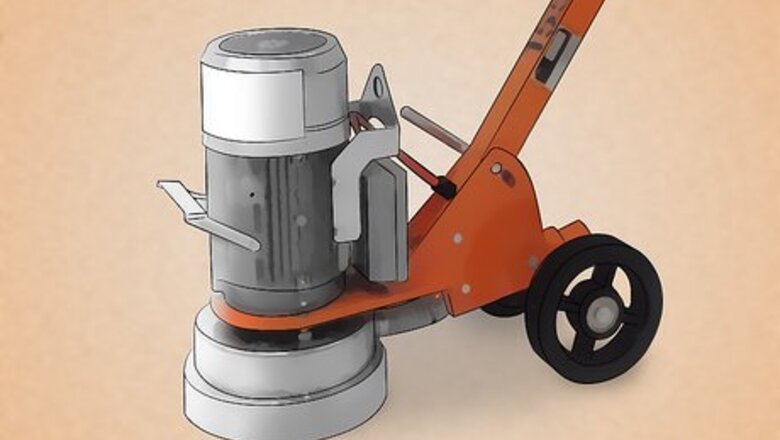
views
Leveling with a Concrete Grinder
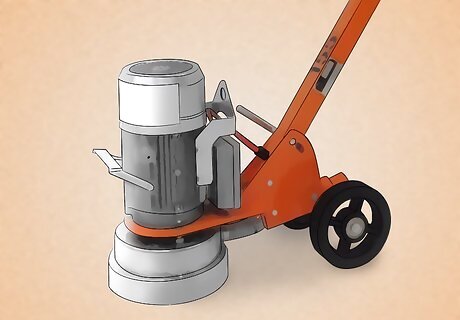
Rent a concrete grinder from your local home improvement center. Most home improvement centers have concrete grinders you can rent out for a project so you don’t have to buy one outright. If you’re not sure whether a store near you rents them, call ahead and ask before you go in.
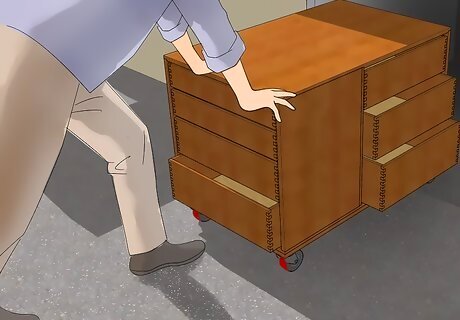
Clear off your basement floor. When using a concrete grinder, it's important that the floor is completely free of any obstacles or debris. Remove all of the appliances and furniture in your basement. Then, go over the floor with a vacuum to pick up any dirt or dust.
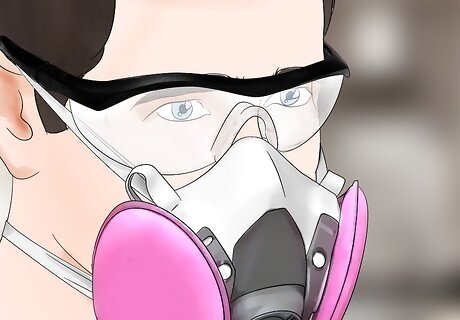
Put on safety goggles and a respirator before you start. When you’re grinding concrete, small particles of concrete can be thrown into the air. These particles can be dangerous if they get in your eyes or lungs. It’s important that you wear safety goggles and a respirator at all times when you’re using a concrete grinder. You can find safety goggles and a respirator online or at your local home improvement center.
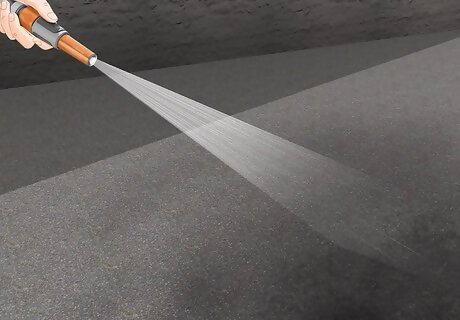
Spray your basement floor with a hose if you want to wet grind the concrete. You can either dry grind or wet grind your floor. Wet grinding is preferable because the water on the floor soaks up the concrete dust and leaves less of a mess to clean up later on. You don’t have to wet grind your basement floor, just keep in mind that you’ll have a bigger mess to clean up if you don’t. Read the manual that came with your concrete grinder to make sure it’s compatible with wet grinding. If you decide to wet grind, spray your basement floor with enough water that there's a visible puddle across the entire floor.
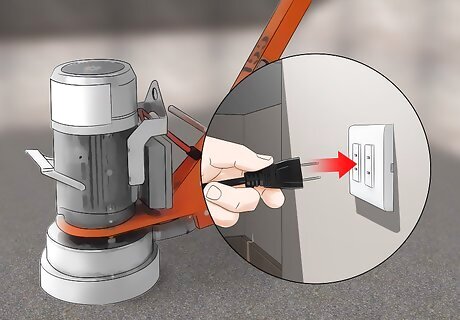
Plug in your concrete grinder and turn it on. Make sure all of the proper attachments are in place so it works effectively. You should also read through the user’s manual that came with the grinder before you turn it on.
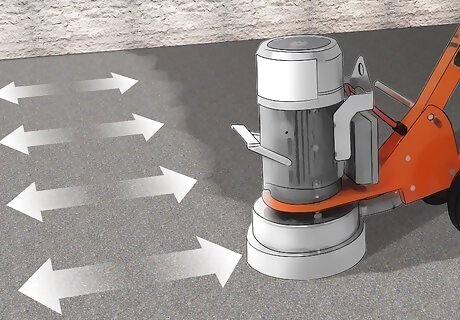
Push the grinder back and forth from one side of the floor to the other. When you reach one side of the floor, move the grinder over next to the row you just made and then slowly push it back to the other side to make a new row. Continue doing this until you’ve gone over the entire surface of the floor. When you encounter a raised spot on the floor, hold the grinder over it for a few seconds so it grinds it down. Make sure you’re pushing the grinder in a straight line.
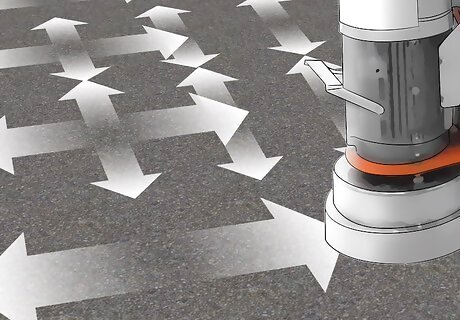
Repeat going in the opposite direction to create a crosshatch pattern. Once you’ve gone over the floor once with the concrete grinder, it’s important that you go over it a second time in the opposite direction so that the floor is even. Do the same thing you did the first time you went over the floor, only this time push the grinder perpendicular to the rows you just made.
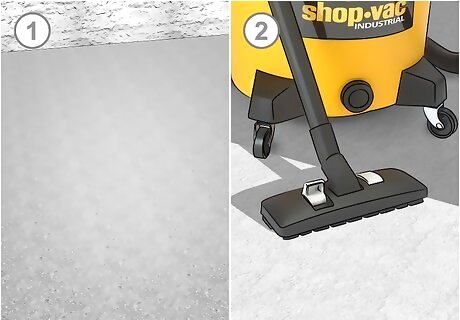
Let your basement floor dry if necessary and then vacuum up any dust. If you wet ground the floor, you’ll need to let it completely dry before you clean it. Otherwise, you can start vacuuming up the dust right away. Once your floor is clean, you can move any furniture and appliances you took out back into the room.
Using a Self-Leveling Agent
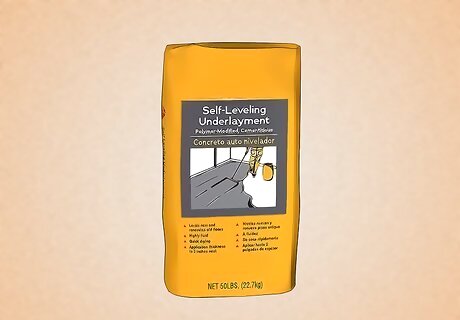
Buy a self-leveling agent from your local home improvement store. A self-leveling agent is a powder that can level an uneven surface when it’s mixed with water. The exact amount of self-leveling agent you need depends on the size of the floor you're leveling.
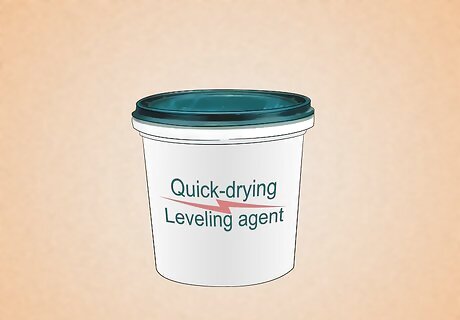
Choose a quick-drying leveling agent if you're in a rush to get the floor done. Quick-drying leveling agents dry a lot faster than regular leveling agents, so they're a good option if you need to get the floor done quickly. However, they don't leave a lot of room for error because of how fast they dry. If you're new to using self-leveling agents, you may want to go with one that has a longer drying time.
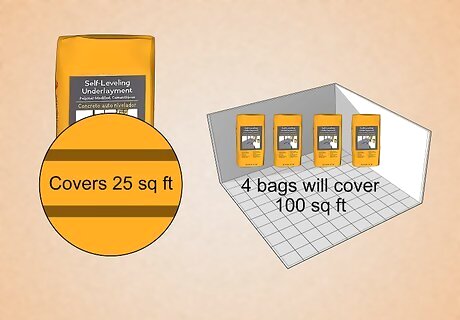
Get enough self-leveling agent to cover the entire floor. To determine how much self-leveling agent you need, start by calculating the floor's square footage. Then, check the label on the self-leveling agent you want to buy to see the number of square feet it covers. Finally, divide the floor's square footage by the number of square feet listed on the self-leveling agent to get the number of bags you'll need. For example, if the floor's square footage is 100, and the self-leveling agent covers 25 square feet, you would need 4 bags. Get more self-leveling agent than you think you need so you don't accidentally run out.
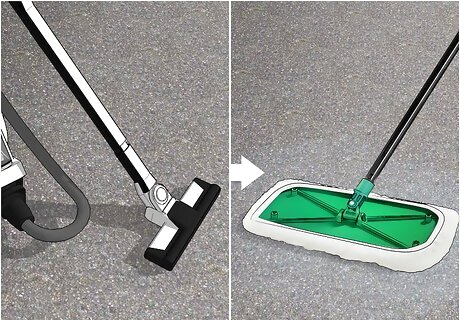
Clear off and clean your basement floor. Before you apply a self-leveling agent, it’s important that your basement floor is free of any furniture, appliances, and debris. Once everything is cleared off your basement floor, vacuum and mop the floor to get rid of any dirt and dust.
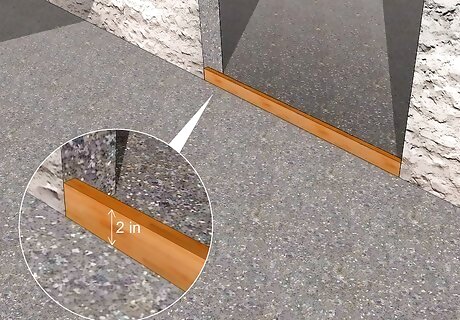
Block areas you don’t want leveling agent to go into with strips of wood. Measure any doorways or other parts of the basement you don't want the self-leveling agent to spread into. Then, cut strips of wood that will fit in these spots. The strips of wood should be at least 2 inches (5.1 cm) tall so none of the leveling agent goes over them. Use duct tape to secure the strips of wood in place. When you’re finished leveling the floor and it’s hardened, you'll be able to easily remove the strips of wood.
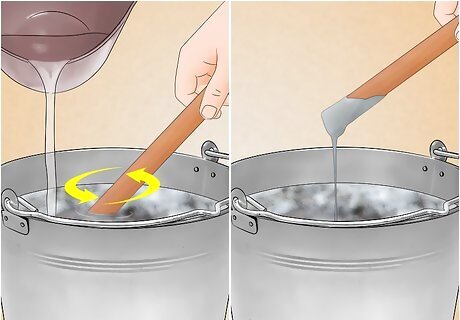
Mix the self-leveling agent and water in a large bucket. First, pour the water into the bucket — read the instructions that came with your self-leveling agent for exactly how much water to use. Then, pour in the self-leveling agent. Use a cement mixer or high speed drill to mix the powder and water together until the powder is fully dissolved. You can find a cement mixer online or at your local home improvement center.
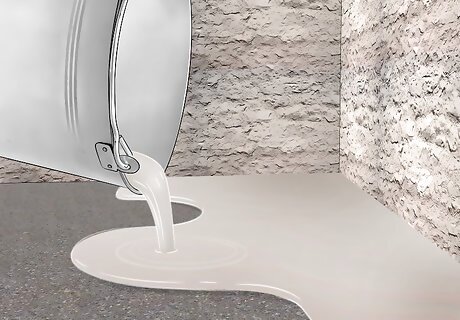
Pour the self-leveling agent over the floor. Start pouring at the furthest point from the exit — that way you won’t have to walk through the self-leveling agent as you work. If you run out of liquid to pour, you’ll need to mix another bucket and then continue covering the floor. You want the layer of self-leveling agent to be thick enough that it covers the highest point on the floor. If you need to walk through the self-leveling agent, wear cleats so you’re only leaving tiny holes behind with each step. The leveling agent will spread out to fill in the holes.
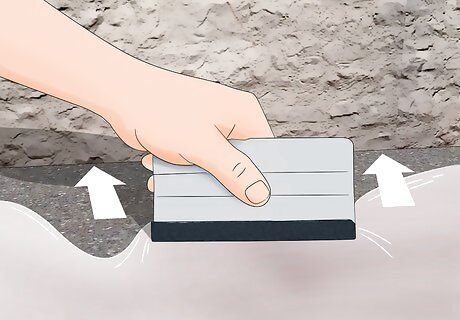
Use a squeegee or trowel to spread around the self-leveling agent. The leveling agent should be thin enough to spread out on its own, but you may need to help it reach the edges and corners of the room. Use the squeegee or trowel to push the leveling agent in the direction you want it to spread. When you’re finished, look around and make sure the entire floor is covered with leveling agent.
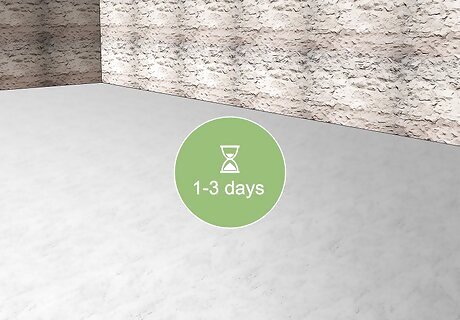
Let the self-leveling agent fully dry. The amount of time it will take the leveling agent to dry depends on what kind you used. If you used regular self-leveling agent, it can take 1-3 days for the floor to fully dry. If you used a quick-drying leveling agent, your floor may be dry after several hours. To test if the leveling agent is dry, try standing on it. If your feet leave any kind of depression in the floor, it’s not dry enough yet.


















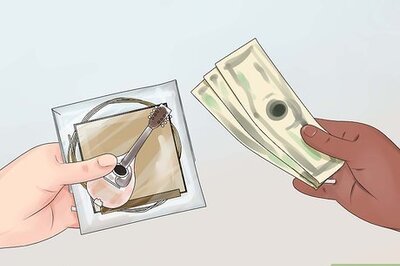
Comments
0 comment